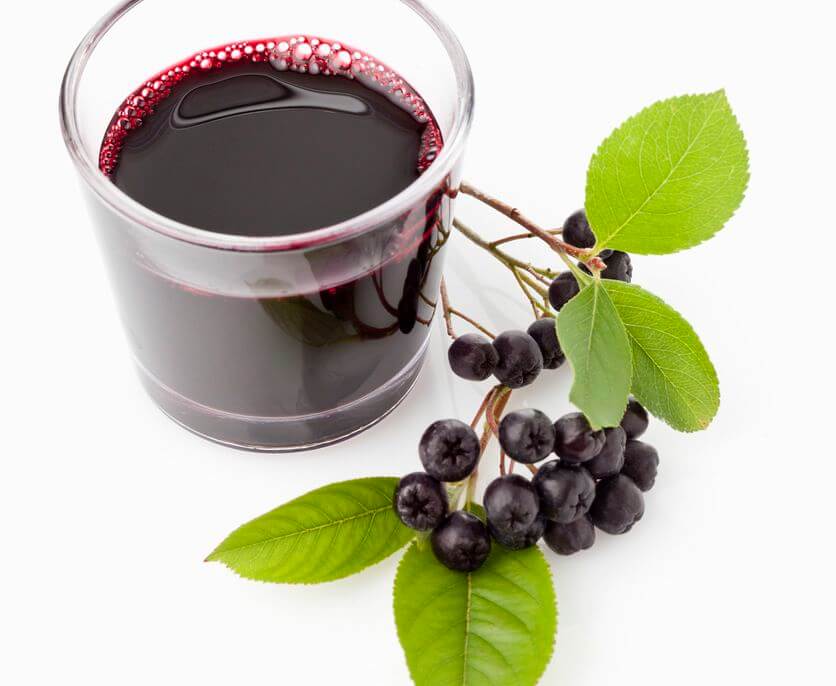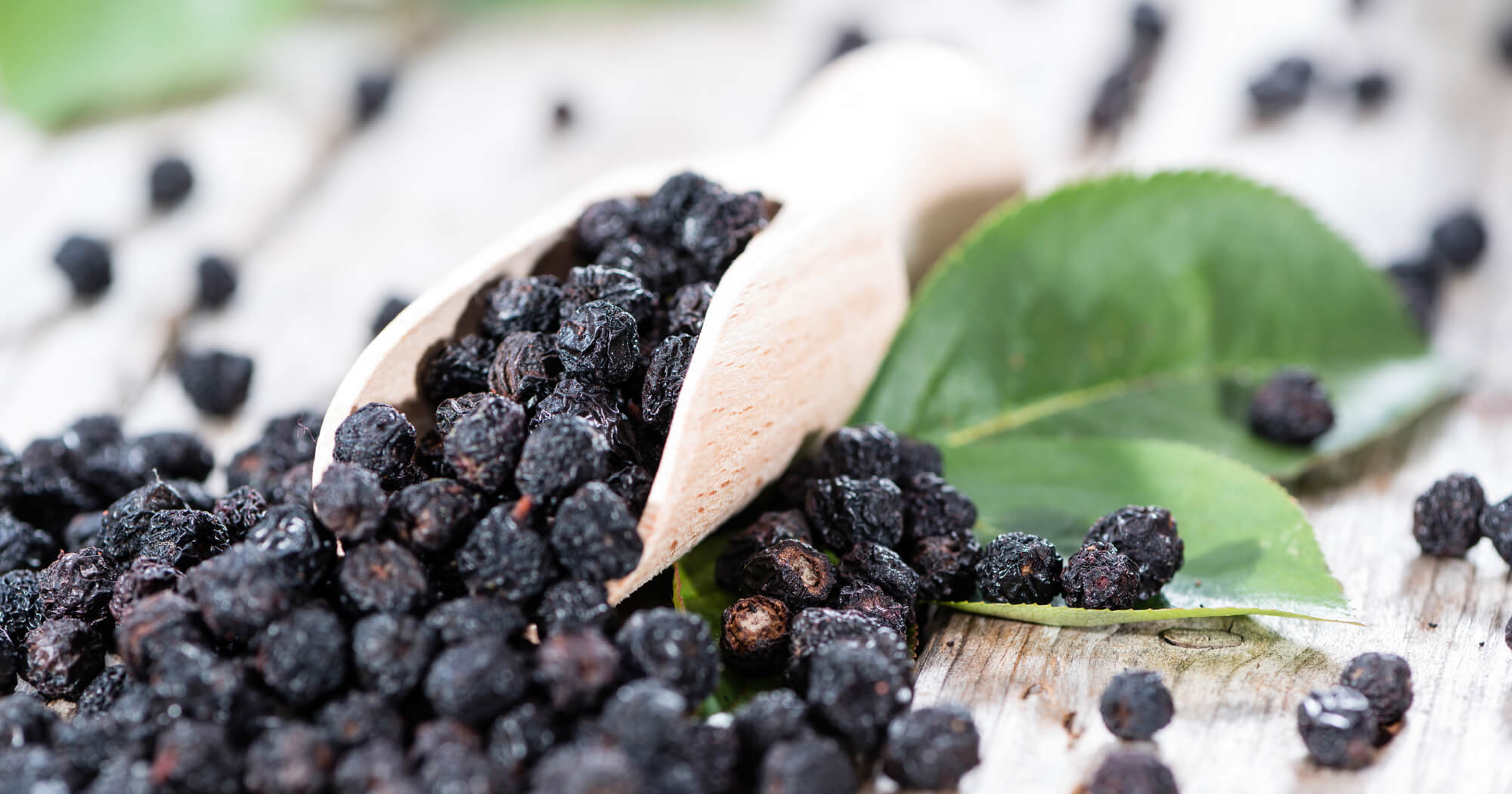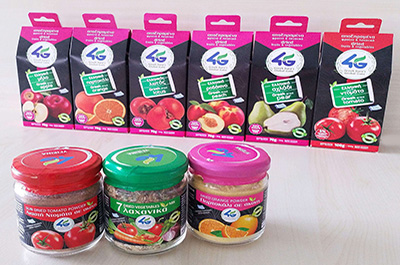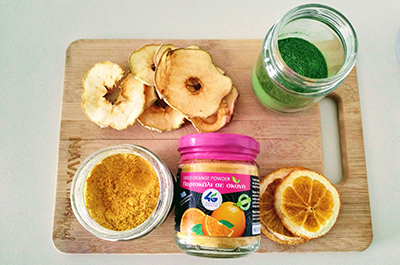Aronia
GREEK ARONIA : In dried form from 4G
The aronia as a arboreal belongs to the category of plants and is widespread in the world. It reaches 3 meters in height. The scientific name of the species is aronia melanocarpa. It is also known as black chokeberry. It is officially recognized as a medicinal plant and holds the first place on the international scale of these plants. In ancient Greece the aronia was a well known medicinal plant.
The aronia was introduced from North America and specifically from Canada to Eastern Europe before the Second World War and was used as an ornamental plant. However, after the war, it was mainly used for its pharmaceutical properties from the countries of the former Soviet Union following the Chernobyl nuclear accident, as the high content of pectin in the fruit helps protect the organism from radiation.
The active substances contained in the aronia, block the heavy metals in the body, which facilitates their removal. For the same reason, it is granted to workers working at nuclear plants. Finally, it is noted that the legendary cosmonaut Yuri Gagarin used arοnia formulations to protect against the cosmic and radioactive radiation of the universe.

HEALTH
The berry aronia has low calories and fat. 100 grams of fresh berries give the body about 50 calories. However, it is one of the richest sources of natural flavonol anthocyanin antioxidants. The ORAC measurement (measuring the antioxidant power of the food) proves that aronia (in English: the black chokeberry) has one of the highest values recorded among black berries – 16,062 micromoles.
Equivalent Trolox (TE) per 100 g. Berry berries contain significant amounts of phenolic flavonoid phytochemicals called anthocyanins. The total anthocyanin content is 1480 mg per 100 g of fresh berries and the proanthocyanidin concentration is 664 mg per 100 g (Wu et al 2004, 2006).
According to scientific studies, the consumption of berries on a regular basis offers potential health benefits over cancer, aging and neurological diseases, inflammation, diabetes and bacterial infections. (By Dr. Paul Gross, September 7, 2007).
They are also rich in flavonoid antioxidants such as carotenoids and zeaxanthin lutein. Zeaxanthin affects the UV filter for ultraviolet rays, thus protecting the eyes from age-related macular degeneration in the elderly.
In addition, it is a good source of many antioxidant vitamins, such as vitamin C, vitamin A, vitamin E, β-carotene and folic acid, as well as metals such as potassium, iron and manganese. 100 g of fresh berries provide about 35% of the daily recommended levels of vitamin C.
DRYING – DEHYDRATION
4G is a pioneer and with production standards fully compliant with the International Standard ISO22000, ensures the excellent quality of the raw materials. Regular laboratory tests of finished products ensure the production of a range of perfectly healthy products. We faithfully serve the Mediterranean Diet standards while maintaining their absolute naturalness without the addition of chemicals or preservatives.

ADVANTAGES
Now you have all Greek nature available, 12 months of a year in your kitchen. 100% of nutrients and vitamins. Healthy, Cleverly, Practically. Ideal choice for the consumer and the professional. 0% Coloring, Preservatives & Additional Sugars.
NUTRITIONAL VALUE OF DRIED ARONIA
The fruit of the aronia belongs to the family of functional foods, or superfoods, that is, foods with increased antioxidant and therapeutic substances that bring beneficial effects to the human body, preventing and curing diseases.
A characteristic feature of the aronia fruit is the extremely high content of vital polyphenols (five times more than the grapes). In the fresh fruit the total polyphenol content is 1.752g per 100g of fruit. Tannins are the main element we provide from the group of polyphenols, which are compounds with antioxidant, anti-fungal and antimicrobial properties, and rich in anthocyanins, containing 1.48g per 100g of fresh fruit.
INSTRUCTIONS FOR USE
The dried aronia is a good alternative to have the Greek nature in the kitchen’s cabinet. It is not necessary the process of hydration. It eats as a snack. It finds application in sweets as well as in milk or yogurt for a healthy breakfast. It has a rich flavor, color, and aroma.

E-SHOP
Visit our online shop and check our variety of products

RECIPES
Read delicious recipes with dried products

CONTACT
Don't hesitate to contact us for any question
